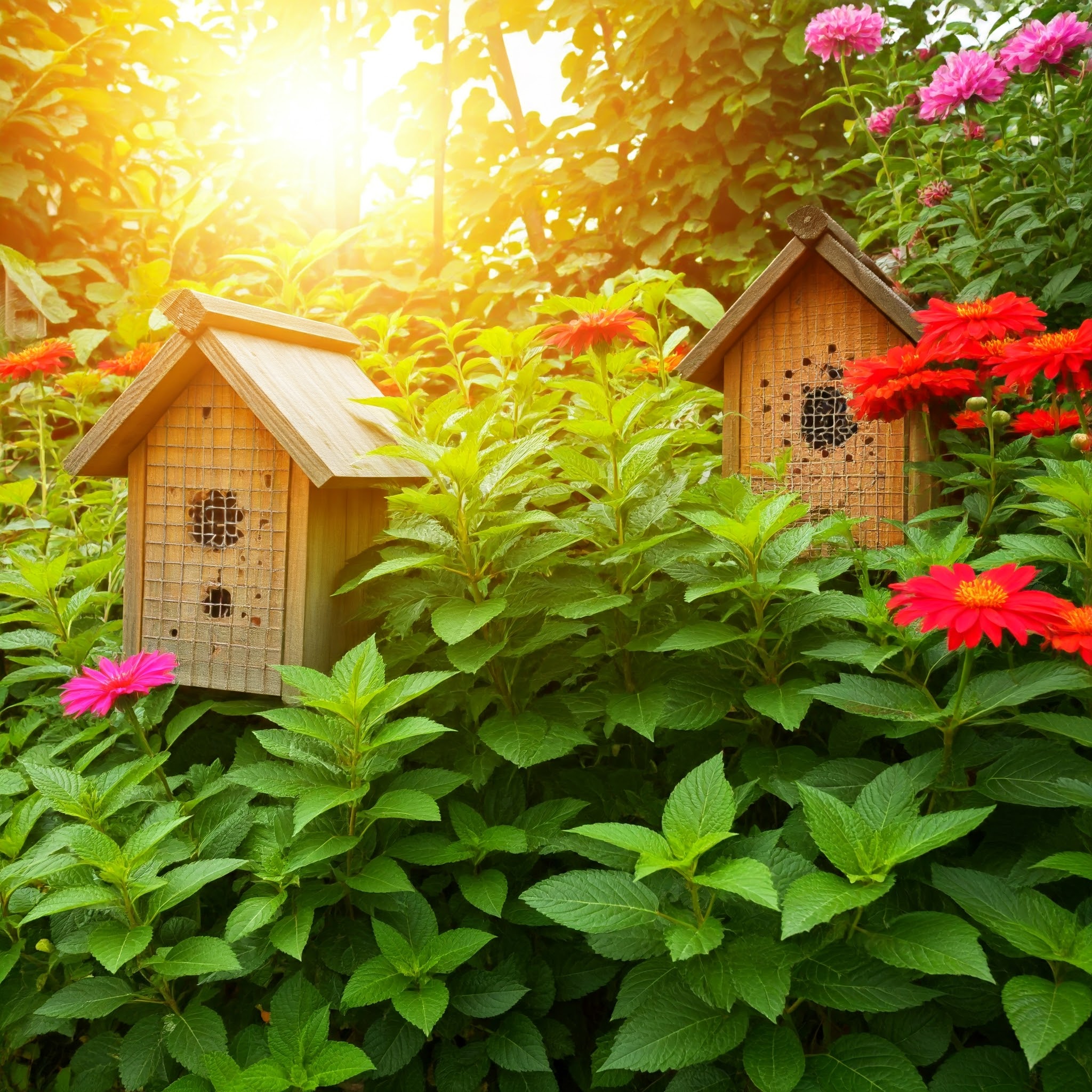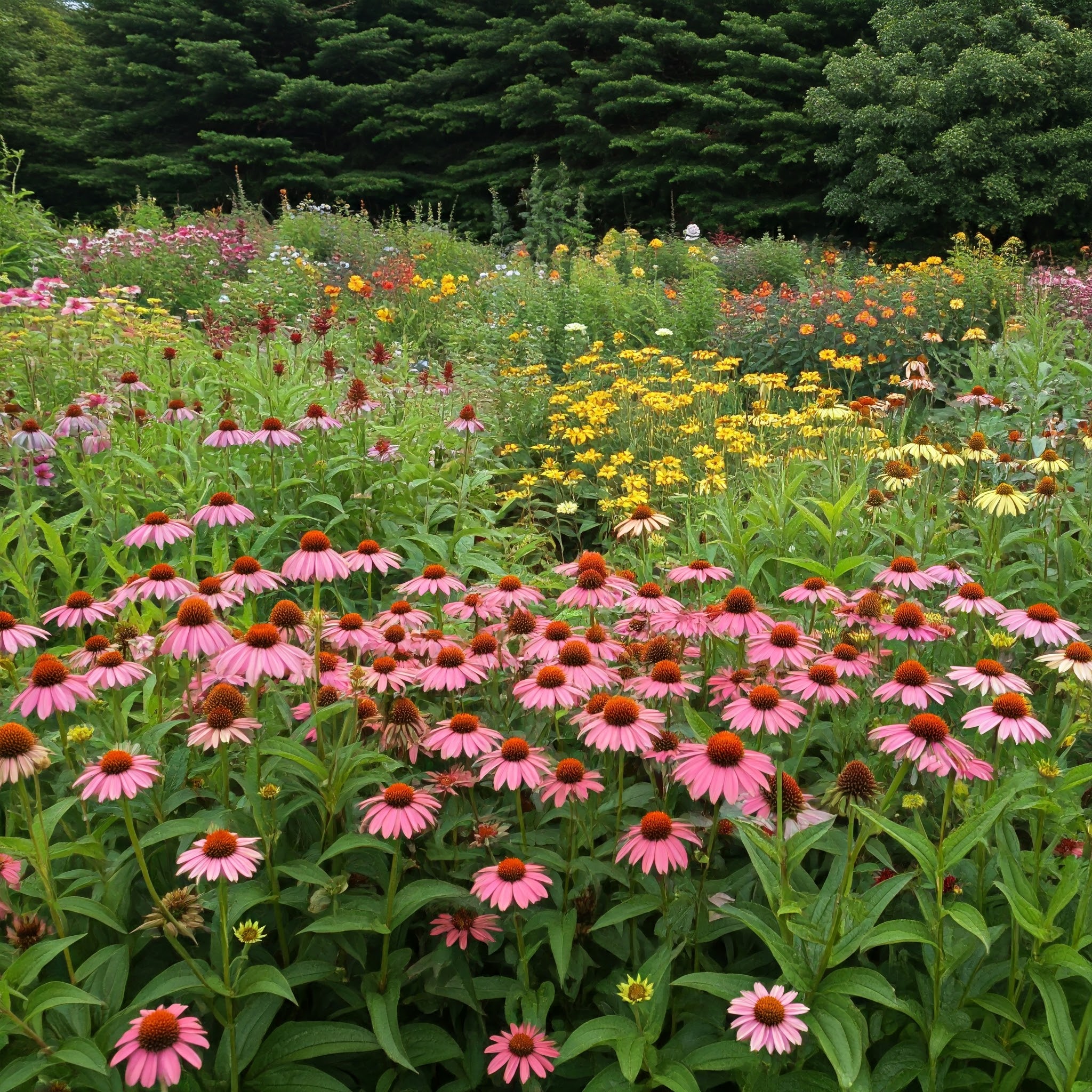Key Takeaways:
| Aspect | Benefit |
|---|---|
| Safe for your family and pets | No harsh chemicals means no risk to loved ones or beneficial insects |
| Environmentally friendly | Protects natural predators and promotes a healthy ecosystem |
| Effective and long-lasting | Creates a balanced garden that discourages future pest problems |
| Easy to implement | Most methods require household items or readily available natural ingredients |
Ever dreamed of a flourishing veggie patch brimming with juicy tomatoes and crisp lettuce, but worried about pesky bugs and critters spoiling your harvest? Fear not, green-fingered friend! Organic pest control is the key to a thriving garden, free from harmful chemicals. This beginner’s guide will equip you with the knowledge and simple steps to keep your garden healthy and vibrant, all while protecting the environment.
Unveiling the Magic of Organic Pest Control
Organic pest control is a holistic approach to garden care that utilises natural methods to deter, eliminate, and prevent unwanted pests. Unlike chemical pesticides, which can harm beneficial insects and pollute the environment, organic methods focus on creating a balanced ecosystem where plants thrive and natural predators keep pest populations in check.
Why Embrace Organic Pest Control?
While chemical pesticides might seem like a quick fix, they come with a hefty downside:
- Harm to beneficial insects: These natural predators, like ladybugs and lacewings, are crucial for keeping pest populations under control. Chemical pesticides often kill these beneficial insects alongside the target pests, creating an imbalance in the garden ecosystem.
- Environmental hazards: Chemical pesticides can contaminate soil and water sources, posing a risk to wildlife and even human health.
- Short-term solutions: Pests can develop resistance to chemical pesticides over time, rendering them ineffective.
Organic pest control offers a sustainable and long-term solution that benefits both your garden and the environment. Here’s a breakdown of the many advantages:
- Safe for your family and pets: No need to worry about harmful chemicals lingering on your fruits and vegetables.
- Promotes a healthy ecosystem: Organic methods encourage beneficial insects and pollinators, leading to a more balanced and resilient garden.
- Effective and long-lasting: By creating a healthy environment, you discourage future pest problems.
- Cost-effective: Many organic methods can be implemented with household items or readily available natural ingredients.
Cultivating a Healthy Garden – Natural Pest Deterrents
The first line of defence in organic pest control is creating an environment that discourages pests in the first place. Here are some key strategies:
Crop Rotation: Planting different crops in the same spot each year disrupts pest life cycles, making it harder for them to establish themselves.
Companion Planting: Interplanting certain herbs and flowers with your vegetables can deter pests. For example, strong-smelling herbs like mint and rosemary can repel aphids, while nasturtiums attract aphids away from your prized vegetables.
Attracting Beneficial Insects: Ladybugs, lacewings, and parasitic wasps are natural predators that feast on common garden pests. Planting flowering herbs and providing shelters like ladybug hotels will attract these helpful insects to your garden.
Identifying the Enemy – Common Garden Pests
Knowing your enemy is half the battle! Here’s a quick guide to some common garden pests and the signs to watch out for:
| Pest | Signs of Damage |
|---|---|
| Aphids | Small, soft-bodied insects that suck sap from leaves, causing them to curl and turn yellow. |
| Caterpillars | Chewed leaves with ragged edges and droppings beneath the plant. |
| Slugs and Snails | Slime trails on leaves and vegetables, with irregular holes chewed into foliage. |
| Whiteflies | Tiny white flying insects that gather on the undersides of leaves, causing them to turn yellow and sticky. |
Your Organic Pest Control Arsenal
Once you’ve identified a pest problem, it’s time to take action! Here are some effective organic pest control methods you can try:
- Insecticidal Soap: This readily available spray made from fatty acids kills soft-bodied insects like aphids and whiteflies on contact.
- Neem Oil: A natural oil extracted from the neem tree, neem oil disrupts the feeding and breeding cycles of many insects.
- Diatomaceous Earth: This fine powder made from fossilized algae dehydrates insects and kills them on contact. It’s particularly effective against crawling pests like slugs and snails.
Here’s a handy table to keep these methods and a few others at your fingertips:
| Pest Control Method | How it Works |
|---|---|
| Insecticidal Soap | Kills soft-bodied insects on contact |
| Neem Oil | Disrupts insect feeding and breeding cycles |
| Diatomaceous Earth | Dehydrates and kills crawling |
Maintaining a Pest-Free Paradise – Ongoing Prevention Tips
Organic pest control is an ongoing process, but with a bit of vigilance, you can keep your garden thriving. Here are some tips for long-term pest prevention:
- Practice good garden hygiene: Regularly remove weeds, fallen leaves, and debris from your garden. These can provide shelter and breeding grounds for pests.
- Water your plants correctly: Overwatering can stress plants and make them more susceptible to pests. Water deeply and less frequently, allowing the soil to dry slightly between waterings.
- Monitor your plants regularly: Regularly inspect your plants for signs of pests or damage. Early detection allows you to take action before a pest population explodes.
- Keep a record: Note down any pest problems you encounter and the methods you used to address them. This will help you identify patterns and refine your organic pest control strategy over time.
Beyond the Basics – Advanced Organic Pest Control Techniques
As you gain experience, you can explore some more advanced organic pest control methods:
- Homemade Sprays: You can create your own insecticidal sprays using readily available ingredients like garlic, hot pepper, and dish soap. Be sure to research recipes and dilute them properly to avoid harming your plants.
- Beneficial Insect Releases: Purchasing and releasing specific beneficial insects, like ladybugs or lacewings, can provide a targeted attack on specific pest problems.
Conclusion – Cultivating a Thriving, Organic Garden
Organic pest control empowers you to create a healthy and vibrant garden ecosystem. By embracing natural methods, you’ll be rewarded with delicious, homegrown produce free from harmful chemicals. Remember, a thriving garden is a balanced garden. By promoting beneficial insects, creating a healthy environment, and taking preventative measures, you can enjoy a bountiful harvest year after year.
Happy gardening!





